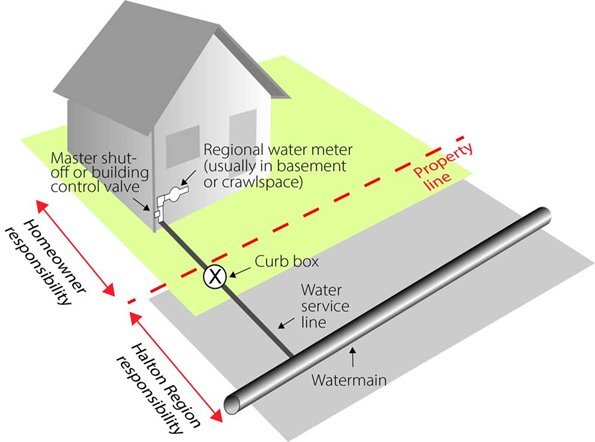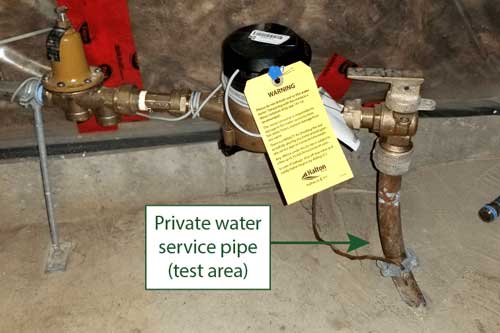Keeping Drinking Water Safe
Halton's drinking water systems
Halton’s drinking water comes from either Lake Ontario or groundwater sources.
The water is treated to provincial water quality standards and then potable water is distributed to homes and businesses through underground water systems.
Who is responsible for the water service lines and plumbing?
Property Owner
The property owner is responsible for the section of water service line that runs from the curb stop into the home. Property owners are also responsible for the maintenance of devices, service valves, plumbing, fittings and accessories located on the private side of the property line, as defined by the Drinking Water System By-law (pdf) .
Halton Region
Halton Region is responsible for the section of the water service line that runs under the street, up to and including the curb stop (from the watermain to the property line). We also maintain the water meter inside and outside your home, but not the pipes that connect directly to the water meter.

How does Halton Region ensure all drinking water is safe to drink and free of lead?
Ontario Drinking Water Quality Standards
How Halton Region keeps water safe
How to check your home’s plumbing or service line for lead
Checking your plumbing or service line for lead

What to do if you have lead pipes
What is the health risk of lead?
Halton’s water is safe to drink. The potential for lead in Halton Region’s drinking water system is extremely low. All known public lead service lines and connections have been replaced.
You are at a higher risk of lead exposure if you:
- Live in an older home that has a lead service pipe or lead paint
- Consume wild game killed with a lead shot
- Work with lead including making stained glass, lead fishing weights, shooting etc.
- Consume traditional medications or privately imported medications, supplements, and spices
- Use consumer products that may contain lead, such as costume jewellery, art supplies, leaded crystal, and glazes on ceramics and pottery
A developing fetus and young children are most vulnerable to long term lead exposure. It can cause neurological deficits related to learning and behaviour in children. Chronic lead exposure has been associated with anemia, hypertension, kidney problems, neuropathy, and adverse reproductive effects in adults.
If you are concerned about exposure to lead, speak to your doctor.

